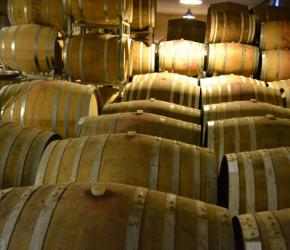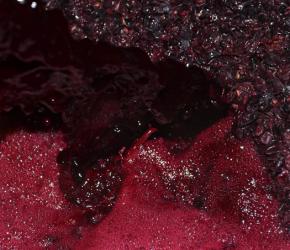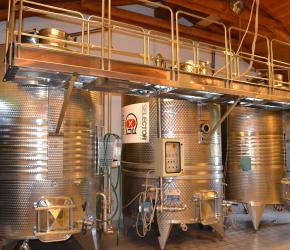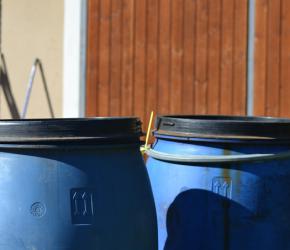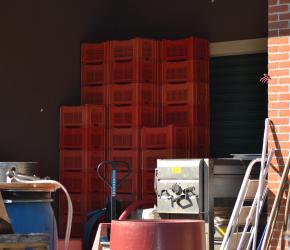Environment
Apart from producing an excellent wine that is easy to drink, it’s also necessary that the process of production, made up of various connecting factors among which economizing on energetic consumption and respecting the environment, is equally good.

The philosophy that we have chosen to adopt and follow has brought us, over the years, closer to an increasing concern towards the problems that affect the environment and eco-sustenance. It is possible to intervene on many of the aspects related to the production of wine, in order to make them more eco-friendly. We have gathered our ideas and put them into practice so as to achieve a healthier and better agricultural production, both in the vineyard and in the cellar.
In the cellar
Light bottles
In the cellar, we use the Albeisa bottle, which is the typical Langa bottle. The 0,75 litre bottle comes in three different types: 450 grams, known as Leggera (Light), 575 grams, known as Media (Medium), and the 700 grams, known as Pesante (Heavy).
Up until seven years ago, the Albeisa 575 gr bottle was used (which is also the most diffused), but then, in 2006, we decided to swap it for the Leggera (Light) bottle, as we were aware of saving in terms of energetic consumption related to the production, transport and recycling.
With the current production of about 70/80 thousand bottles, such a choice has brought on an alleviation of 90/100 quintals every year.
Phytopurification
Since four years ago, during the grape harvests, all of the waste waters are treated by phytopurification.
Phytopurification is a natural procedure of purifying domestic, agricultural and sometimes industrial waste waters, using the same spontaneous method of purification that occurs in aquatic and humid areas.
The advantages of such a procedure are the absence of odour, the proliferation of insects in underground systems of discharge, the total destruction of the pathogen load, the possibility to reuse the purified water for irrigation, the reduction of electricity used compared to that used for traditional purification, the absence or reduced need for electromechanics, the final effluent being in keeping with the current rules and regulation (Table 1.2 D.lg. n 152/2006) and the correct functioning of the purification being independent from the absences of energy or hydraulic overload, which are fundamental for traditional purification.
Thermal solar panels and photovoltaic panels
In 2010 we installed 18 square metres of thermal solar panels so as to have hot water in the cellar and heating in the new tasting room, thus reducing by 40-50% the use of gas necessary to heat the water.
In Summer 2016 we built a new storehouse and we installed 32 square meters of new photovoltaic panels: now, thank to them, we manage to self-produce also 60-70% of electricity used in the cellar. This energy doesn't satisfy only our needs, but it is shared with other consumers in order to use more clean energy for the environment.
In the vineyard
Low impact on the environment action
The running of the vineyard and the safeguarding of phytosanitary are carried out within the full respect of the environment and the vine’s physiology, reducing the impact on the environment and stimulating the plants to develop their own self-defense.
Since the very beginning, we have never used chemical fertilizers for the vineyards: the natural shrinkage has caused a reduction of shade over the foliage, reducing problems related to cicadas and weevils, and the total disappearance of “botrytis” invasions, making the use of chemical defence useless and therefore unnecessary.
Chemical defence is solely used to fight peronospora and oidium, mainly through the use of products based on copper and sulphur.
Since 1995, the running of the vineyards has been carried out in accordance and respect of the European laws, Regulation (EEC) N.2078/92.

